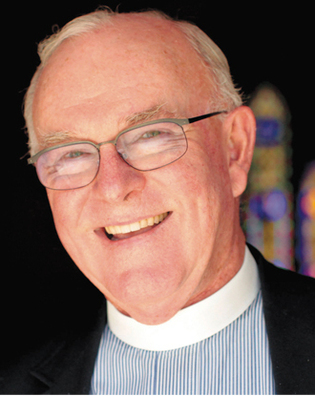 loading
loading
Light & VerityEpiscopal chaplain quits amid controversyA priest says he was forced out because of his letter about Israel and anti-Semitism.  Episcopal Church at YaleThe Reverend Bruce Shipman, who was serving as priest-in-charge of the Episcopal Church at Yale, says he was forced out of his position. View full imageThe interim chaplain of the Episcopal Church at Yale has resigned, saying his board forced him out amid controversy over his statements about Israel and anti-Semitism. The Reverend Bruce Shipman ignited protest in late August, when the New York Times published a letter to the editor in which he attributed “growing anti-Semitism in Europe and beyond” to Israel’s policies rather than to hatred of Jews. Shipman was responding to a Times article about attacks on Paris synagogues, fatal shootings at a Jewish museum in Brussels, and European crowds chanting “Jews, Jews, cowardly swine” and “Jews to the gas!” In his letter, Shipman wrote, “The best antidote to anti-Semitism would be for Israel’s patrons abroad to press the government of Prime Minister Benjamin Netanyahu for final-status resolution to the Palestinian question.” Critics decried the letter as blaming not just Israel but Jews worldwide for the anti-Semitic episodes. Shipman’s signature identified him as “the Episcopal chaplain at Yale.” Yale responded to the controversy by noting that Shipman was “not employed by Yale or the Yale Chaplain’s Office.” The Episcopal Church at Yale (ECY) is a separate organization that is affiliated with Yale Religious Ministries and worships in the university’s Dwight Chapel. But after ECY announced on September 4 that Shipman, “on his own initiative, has resigned as Priest-in-Charge,” Shipman told the Yale Alumni Magazine that he was pushed out by his board and, indirectly, by University Chaplain Sharon Kugler. “At a meeting of the Board of Governors of the Episcopal Church at Yale… the Executive Committee asked me to resign,” Shipman said by e-mail. “They alluded to pressure from a number of people on campus, including the university chaplain, Sharon Kugler.” Kugler declined to address the question of whether she pressured or asked ECY leaders for Shipman’s resignation. “Personal opinions expressed publicly by the former interim chaplain of the Episcopal Church at Yale have been a source of concern and pain for many, both within and outside of our campus community,” Kugler said in a statement. “Our primary focus now is to move forward with renewed and reanimated resolve to nurture a truly welcoming and supportive community for faculty, staff, and students of all faiths.” Bishop Ian Douglas, who heads the Episcopal Diocese of Connecticut and is ex officio president of ECY’s Board of Governors, said Shipman resigned “because of institutional dynamics” between the priest and some board members. “These challenging circumstances much predated” Shipman’s New York Times letter, Douglas continued in a phone interview. “Frankly, his letter and the fallout from the letter just exacerbated” the existing problems. “Neither the board nor the bishops resolved”—that is, adopted a formal resolution—“to ask for his resignation,” Douglas says. In mid-September, the Episcopal Church at Yale appointed Paul Carling, priest at a parish in Fairfield, Connecticut, as provisional interim chaplain. In an e-mail to Shipman the day his Times letter was published, Kugler had addressed his decision to include his title: “To say that I am deeply troubled is an understatement.… It is one thing for you to write to the NYT as a private citizen, it is altogether another thing to claim to represent a group. This was a serious misstep on your part.” (Shipman forwarded the e-mail to the Yale Alumni Magazine.) By e-mail to the magazine, Shipman says: “The Yale name was my title. I did not in any way suggest that my point of view was the mind of ECY or the chaplain’s office at Yale, and I believe that it is my right to send letters that speak my conscience.” In hindsight, he says, “I would phrase the letter differently.” In a follow-up letter to the Yale Daily News, the priest wrote that “nothing done in Israel or Palestine justifies the disturbing rise in anti-Semitism in Europe or elsewhere.” He did not retract any of his previous statements.
The comment period has expired.
|
|